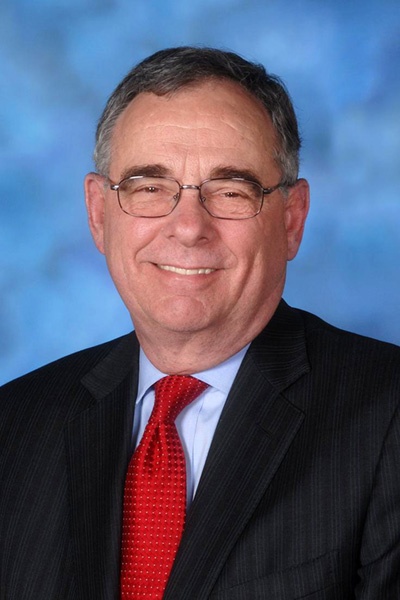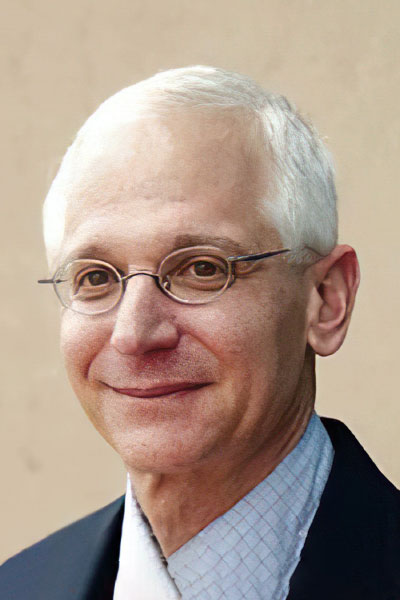Soon after starting work on a book about the role the NCI-designated cancer centers have played in the National Cancer Program, Skip Trump and Eric Rosenthal got in touch with John W. Yarbro.
Yarbro got on their list because in 1971 he testified at congressional hearings about S.1828, the Act to Conquer Cancer, a bill that later morphed into the National Cancer Act of 1971.
At the time he testified, Yarbro was the founding director of medical oncology at the American Oncologic Hospital, the cancer hospital adjacent to the Institute for Cancer Research, which would merge to become Fox Chase Cancer Center in 1974.
Trump and Rosenthal also knew Yarbro as one of the founders of the Association of Community Cancer Centers, and they recalled that sometime in the 1970s he had attempted to earn an NCI cancer center designation for the Ellis Fischel State Cancer Hospital at the University of Missouri.
The authors didn’t realize initially that between 1972 and 1975 Yarbro served as the first director of the cancer centers program at NCI, and during that period, he presided over designation of five comprehensive cancer centers—that’s in addition to the three that were recognized as comprehensive at the time of the signing of the National Cancer Act.
“Unfortunately, in the midst of our interview, John got ill, and we never really finished anywhere near as a much of an in-depth discussion as we would’ve liked,” Trump said to The Cancer Letter.
Yarbro died on April 13, 2020, at age 88. After Yarbro’s death, his wife Connie H. Yarbro, one of the founders of the Oncology Nursing Society, sat in for an interview with Trump and Rosenthal and gave them several undated memos that Yarbro appears to have written in mid-1970s.


The documents serve as a basis of a section of Trump’s and Rosenthal’s book, “Centers of the Cancer Universe: A Half-Century of Progress Against Cancer.” Trump, Rosenthal and Connie Yarbro gave permission to the Cancer History Project to publish the originals of John Yarbro’s five memos.
“What we were really fortunate to be able to review, thanks to the kindness of Connie Yarbro, was a series of notes that John put together,” Trump said. “The notes are undated and it’s only by inference that one can estimate what they were for. They were titled notes to file.
“My hypothesis is that John wrote these notes in late ‘74, early ‘75, as he was preparing to transition out of the job as head of the cancer centers office at the NCI to become the director at the University of Missouri Ellis Fischel Program,” Trump said.
“When we first saw [the materials,] I said to Skip, ‘This is pure gold.’ We didn’t expect anything to unearth something like this. But we did,” Rosenthal said to The Cancer Letter.
The observations, contained in five documents, are undated and labelled “memorandum for the record” by Yarbro. They appear to be intended to provide Yarbro’s successor at NCI with his views of the capabilities of those centers aspiring to gain designation as well as his thoughts on the development of departments of oncology for successful cancer centers, Trump said.
“My fantasy was that John was writing these for his successor to give him an orientation opinion of John Yarbro,” Trump said. “If he did that, these were then copies of what he gave to his successor. So, I think it’s a fair hypothesis that this is the first time these have come to light, certainly publicly.”
The three comprehensive cancer centers in existence from the outset were MD Anderson, Roswell Park, and Sloan-Kettering.
At the time of Yarbro’s departure, comprehensive designation was given to five more centers: the Sidney Farber Center in Boston, Fred Hutchinson Center in Seattle, Wisconsin Center in Madison, Greater Miami Center in Florida, and the Mayo Foundation Center in Minnesota. (The Cancer Letter, July 18, 1975.)
According to NCI at the time, the following institutions were identified as developing comprehensive cancer centers: Fox Chase Cancer Center, affiliated with University of Pennsylvania; Colorado Regional Cancer Center; Duke University Medical Center; Georgetown University-Howard University Comprehensive Cancer Program; Illinois Cancer Council; the Johns Hopkins Medical Institutions; University of Alabama, Birmingham; University of Southern California (with the Los Angeles County Department of Hospitals); and Yale University Medical School.
The memos about relative strengths and weaknesses of these institutions are written in Yarbro’s swaggering, Churchillian sweep. Reading the memo on emerging cancer centers it’s important to know that some of the institutions he slams ultimately ended up doing quite well, while some of the ones he praises ultimately faltered.
Today, as cancer centers that are trying to capture their histories, the Yarbro memos offer a valuable opportunity to look back to the very beginning of the cancer centers program.
“This program represents the major disaster area and possibly the major blunder of the cancer centers program to date,” he writes about the Colorado Regional Cancer Center. “Next to Denver, this is the worst we have,” he writes about Georgetown-Howard Cancer Center.
Yarbro offers pragmatic advice on handling the Hutchinson Cancer Center:
“The political problem with the Hutchinson Center revolves around the fact that the director of the center, Dr. William Hutchinson is a close personal friend of Senator [Warren] Magnuson [(D-WA), at the time chair of the Senate Commerce Committee] and he makes frequent calls to the senator often on relatively trivial matters which can result in a vast expenditure of staff time in solving the problems which he causes. As a result one must be exceedingly cautious in dealing with this cancer center and care must be taken to identify requests which Dr. Hutchinson has an interest in. I have found by experience that it is easier to surrender than to fight one of these battles.”
Hahnemann University, Yarbro similarly notes, “presents a particular problem in that they frequently work with Congressman [Daniel] Flood [(D-PA), a senior member of the House Appropriations Committee] and must be treated with extreme caution.”
The documents, labeled “Memo for the Record,” are being published in full here for the first time:
- Trouble spots in Comprehensive Cancer Centers;
- Developing Comprehensive Cancer Centers;
- Comprehensive Cancer Center evolution;
- Core Grant evolution;
- Department of Oncology Development Grants;
As Yarbro left his position at NCI in July 1975, he gave a pithy exit interview to The Cancer Letter:
“Some of our centers are one-man operations,” Yarbro said at the time. “They exist only because of the leadership of a single, dynamic individual and are not established as viable academic entities. In such cases the loss of the leader can result in the collapse of the center into fragmented multi-departmental uncoordinated programs.”
Yarbro’s goal on departure from NCI was to build an NCI-designated cancer center in Columbia, Missouri.
In one of the memos, he lays out the vision for the cancer center in that state. An approach under consideration would create a department of oncology within the university “which will have departmental autonomy and which will be responsible for the staffing of the Cancer Research Center and the Ellis Fischel State Cancer Hospital.
“In addition, [there will be] a statewide organization involving two osteopathic medical schools as well as the medical school in Kansas City affiliated with the University of Missouri and the medical school at St. Louis University in a consortium for a statewide cancer control effort,” Yarbro wrote in the memo that doesn’t note specifically that he is planning to depart—or perhaps had already departed—for Missouri. “If this complex arrangement can be successful, and there is reason to hope that it may be, then this program will be a candidate for site visit for comprehensive status in 1976.”
Alas, Yarbro’s efforts in Missouri didn’t bring desired results, and he resigned as director, blaming political resistance to creating a coordinated cancer program.
“In three years, we’ve accomplished what I thought we should have accomplished in three months,” Yarbro told The Cancer Letter at the time. “I’m ashamed to go to NCI and ask for renewal of our grant. We have made some progress, but not enough. I have seen other center programs worse than this.
“We could put on a floor show and perhaps get renewed, but I feel too strongly about the centers program and I will just not do it. People here just do not want to work together. There have been too many picky roadblocks. It would not be ethical to try to cover it up.”
Trump and Rosenthal spoke with Paul Goldberg, editor and publisher of The Cancer Letter and co-editor of the Cancer History Project.
A video recording of the conversation is posted here.












